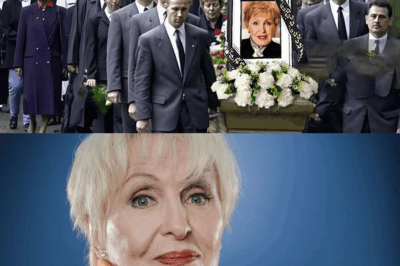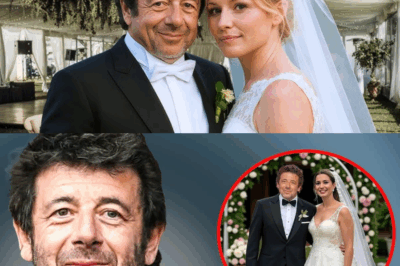French Personalities Condemn Libération’s Scathing Thierry Ardisson Obituary, Sparking Media Ethics Debate

The recent passing of Thierry Ardisson, the iconic French television figure affectionately known as “l’Homme en noir,” at the age of 76 from liver cancer, has not only marked the end of an era in French broadcasting but has also ignited a contentious debate within the country’s media landscape. While an outpouring of tributes from colleagues, friends, and fans honored his unique and often polarizing contributions to television, a particularly harsh article published by the prominent French newspaper Libération immediately drew widespread condemnation, particularly from musician Thomas Dutronc and comedian Stéphane Guillon. Their furious reactions have thrust the conversation about journalistic ethics, respect for the deceased, and the complex legacies of public figures into the spotlight.
Libération‘s controversial piece, provocatively titled “Thierry Ardisson, ou les lunettes noires du vieux monde misogynes” (Thierry Ardisson, or the dark glasses of the misogynistic old world), deviated sharply from the generally respectful tone of obituaries. Instead of focusing solely on his professional achievements or the personal impact of his death, the article delved into a critical analysis of Ardisson’s career, specifically highlighting aspects it deemed misogynistic or representative of an outdated, male-dominated media environment. This sharp critique, appearing so swiftly after his passing, was widely perceived as inappropriate and a profound lack of respect by many.
Stéphane Guillon, known for his incisive wit and satirical takes on society, was among the first to voice his indignation. Taking to Instagram, Guillon concisely expressed his outrage with a powerful “Honte à Libération” (Shame on Libération). This sentiment, while direct, encapsulated a broader feeling of dismay among those who felt the newspaper had crossed a line. Guillon’s reaction quickly resonated, amplifying the critique of Libération‘s editorial decision.

However, it was Thomas Dutronc, the celebrated musician and son of the legendary Jacques Dutronc and Françoise Hardy, who delivered the most scathing rebuke. Dutronc minced no words in his condemnation, directly attacking Libération for what he perceived as a fundamental failing in its journalistic duty and human decency. His pointed remarks accused the newspaper of lacking “heart,” “respect for the dead,” and even “memory” – a pointed jab at the publication’s own historical writings, perhaps implying a past inconsistency or hypocrisy in its coverage. Dutronc’s deeply personal and emotional response underscored the gravity of the perceived offense, framing it not just as a professional misstep but as a moral failing.
The strong reactions from Dutronc and Guillon highlight the persistent division surrounding Ardisson’s legacy, even in death. Throughout his career, Ardisson was a figure of contradiction: a brilliant interviewer who could draw out intimate confessions from his guests, a provocateur who delighted in challenging societal norms, and a businessman who built a formidable media empire. His programs, such as Tout le monde en parle and Salut les Terriens!, became cultural touchstones, known for their unique blend of celebrity interviews, social commentary, and often unbridled irreverence. He cultivated an image of intellectual rebellion, often pushing the boundaries of political correctness, a stance that earned him both fervent admirers and vehement critics.
The controversy surrounding Libération‘s obituary reflects the ongoing tension within media outlets regarding how to cover complex and controversial public figures, especially posthumously. Is it the role of an obituary to offer a balanced, largely celebratory account of a life, or should it also incorporate critical assessments of a person’s less palatable aspects, even at the risk of appearing disrespectful? This particular incident reignites this perennial debate, with many arguing that the immediate aftermath of a person’s death is not the time for such a sharp, judgmental critique.
Ardisson’s commitment to irreverence and political incorrectness was a hallmark of his career. He often invited guests from across the political and social spectrum, fostering debates that were frequently uncomfortable but always engaging. His unique interviewing style, characterized by his piercing gaze from behind dark glasses and his often blunt questioning, made him a captivating presence. Even those who disagreed with his views often tuned in, drawn by the unpredictable nature of his shows and his undeniable talent as a showman.
The backlash against Libération is not merely about defending Ardisson’s honor but also about safeguarding a certain expectation of journalistic decorum. Critics argue that while scrutiny of public figures is essential, the timing and tone of such critiques, particularly in the immediate wake of death, should be handled with sensitivity. The incident underscores the power of public opinion in shaping narratives and holding media organizations accountable for their editorial choices.
As the dust settles, the controversy surrounding Thierry Ardisson’s obituary serves as a potent reminder of his indelible impact on French media. His career was a testament to his unique vision and willingness to challenge the status quo, even if it meant alienating some. The reactions of Thomas Dutronc and Stéphane Guillon further cement Ardisson’s status as a figure who, even in death, continues to provoke discussion and reflection on the intricate relationship between public life, media representation, and enduring legacy. The debate over Libération‘s article highlights that for figures like Ardisson, their influence, and the conversations they spark, extend far beyond their lifetime.
News
“💔😢 Funérailles de Nicole Croisille : son mari dévasté, pleure à chaudes larmes et dévoile un douloureux secret sur leur vie commune. Une révélation émouvante qui secoue l’opinion publique et dévoile une facette cachée de leur amour.”
“💔😢 Funérailles de Nicole Croisille : son mari dévasté, pleure à chaudes larmes et dévoile un douloureux secret sur leur…
“💥📸 À 23 ans, Émilien a ENFIN posté une photo surprise qui a enflammé les réseaux sociaux ! Une image intrigante qui a immédiatement suscité des rumeurs, laissant les internautes spéculer sur sa vie privée.”
“💥📸 À 23 ans, Émilien a ENFIN posté une photo surprise qui a enflammé les réseaux sociaux ! Une image…
“💥❤️ À 77 ans, Évelyne Dhéliat brise enfin le silence et révèle la vérité sur le nouvel amour de sa vie ! Une confession émouvante qui bouleverse ses fans, offrant un nouveau chapitre romantique inattendu dans sa vie.”
“💥❤️ À 77 ans, Évelyne Dhéliat brise enfin le silence et révèle la vérité sur le nouvel amour de sa…
“💍💥 Après 18 ans de divorce, Patrick Bruel annonce son mariage avec la femme qu’il aime depuis 2 ans ! Une nouvelle qui secoue le monde de la célébrité, bouleverse les fans et redonne espoir à l’amour après des années de séparation.”
“💍💥 Après 18 ans de divorce, Patrick Bruel annonce son mariage avec la femme qu’il aime depuis 2 ans !…
“💥😱 À 67 ans, Mimie Mathy avoue enfin la vérité que tout le monde suspectait ! Une révélation explosive qui bouleverse son image et fait trembler le public, dévoilant des secrets longtemps cachés dans l’ombre.”
“💥😱 À 67 ans, Mimie Mathy avoue enfin la vérité que tout le monde suspectait ! Une révélation explosive qui…
“💥🎤 Matthieu Delormeau : « Je n’ai plus de prod, plus de chaîne, plus de mec… » Sa descente aux enfers révélée chez Cyril Hanouna, un témoignage choc sur son combat contre la cocaïne et la chute dramatique de sa carrière.”
“💥🎤 Matthieu Delormeau : « Je n’ai plus de prod, plus de chaîne, plus de mec… » Sa descente aux…
End of content
No more pages to load












